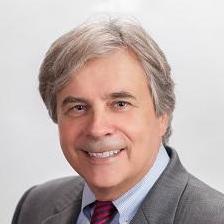 Diversification among individual securities does not guarantee specific investment returns, nor does it guarantee a profit or prevent a loss. Security diversification does, however, help to balance an investor’s risk and reward, resulting in the reduction of the variability of a portfolio’s return.
Diversification among individual securities does not guarantee specific investment returns, nor does it guarantee a profit or prevent a loss. Security diversification does, however, help to balance an investor’s risk and reward, resulting in the reduction of the variability of a portfolio’s return.
Retirement plan advisors recognize the benefits of investment diversification, including:
- reducing portfolio risk;
- limiting fluctuations that might result from investing in a single asset or asset class; and
- capturing gains from a variety of assets or asset classes.
The concept of "diversifying plan assets" has been hard-wired into ERISA since 1974. The mandate to diversify plan assets is not likely to be removed anytime soon.
Should the Quarterly Review be Diversified?
Plan fiduciaries comprise a mixed bag of U.S. workers. There is some commonality among the universe of retirement plan fiduciaries, but not a lot of consistency. The commonality comes in the form of not working with Prohibited Persons who have been disqualified under Section 411, or fiduciaries under an active program 47 investigation. The consistency may be limited to the fact that the term “plan fiduciary” applies.
Engaging all plan fiduciaries every quarter can be a difficult task. Just as people learn differently—some by reading, some by hearing, some by experiencing and some by writing—fiduciaries are engaged via a variety of methods and processes.
When planning, designing and conducting a quarterly review meeting, every retirement plan advisor shifts from being an advisor. They become a teacher, or an instructor, as they prepare and deliver for 60 to 120 minutes. The key to engagement at these regular meetings is for the retirement plan advisor to have something for everyone. In today’s environment, there is no shortage of front-burner topics—e.g., court cases, a faltering domestic economy, talent acquisition and retention challenges, and committee turnover—making it easier than ever to connect with and engage fiduciaries.
Read more commentary from Steff Chalk here.
Structuring Meeting Content for Consumption
There seems to be more new blood, higher turnover and less experience on retirement committees today than ever before. It could be lack of resources, the greying of the C suite, competing corporate priorities or something else altogether. It is likely that the retirement plan advisor has become the most tenured de facto member of the retirement committee!
In the interest of having something for everyone, don’t be bashful about starting at the highest level, reiterating a few prudent fiduciary practices, including:
- Reinforce the concepts of discretionary authority, the control of plan assets, rendering investment advice and holding discretionary authority in the administration of a plan.
- Reviewing a recent court case or two—especially where a provider was the target defendant that chose to not settle and subsequently defended their position successfully. Such stories are great examples to help all plan fiduciaries comprehend the seriousness of the position as well as the importance of employing a prudent process and appropriate documentation.
- Emphasize the audience for all of the committee’s documented conversation, actions, summary write-ups and meeting minutes. (The ultimate audience for all documentation includes the judge, the jury and plaintiffs’ counsel. Keeping that in mind should help you streamline meeting minutes and documentation.) A good retirement plan advisor always reviews meeting minutes prior to the minutes being approved.
- Low-hanging opportunities exist in most plans. This may include adding auto features, a Roth option, a QDIA, annual true-up for the company match, or accepting rollovers upon onboarding.
Make sure to have something for everyone and try to transfer that knowledge in multiple ways to increase the likelihood that all fiduciaries will grasp exactly what you are conveying.
Steff Chalk is the Executive Director of The Retirement Advisor University (TRAU), The Plan Sponsor University (TPSU) and 401kTV. This column first appeared in the Summer issue of NAPA Net the Magazine.

